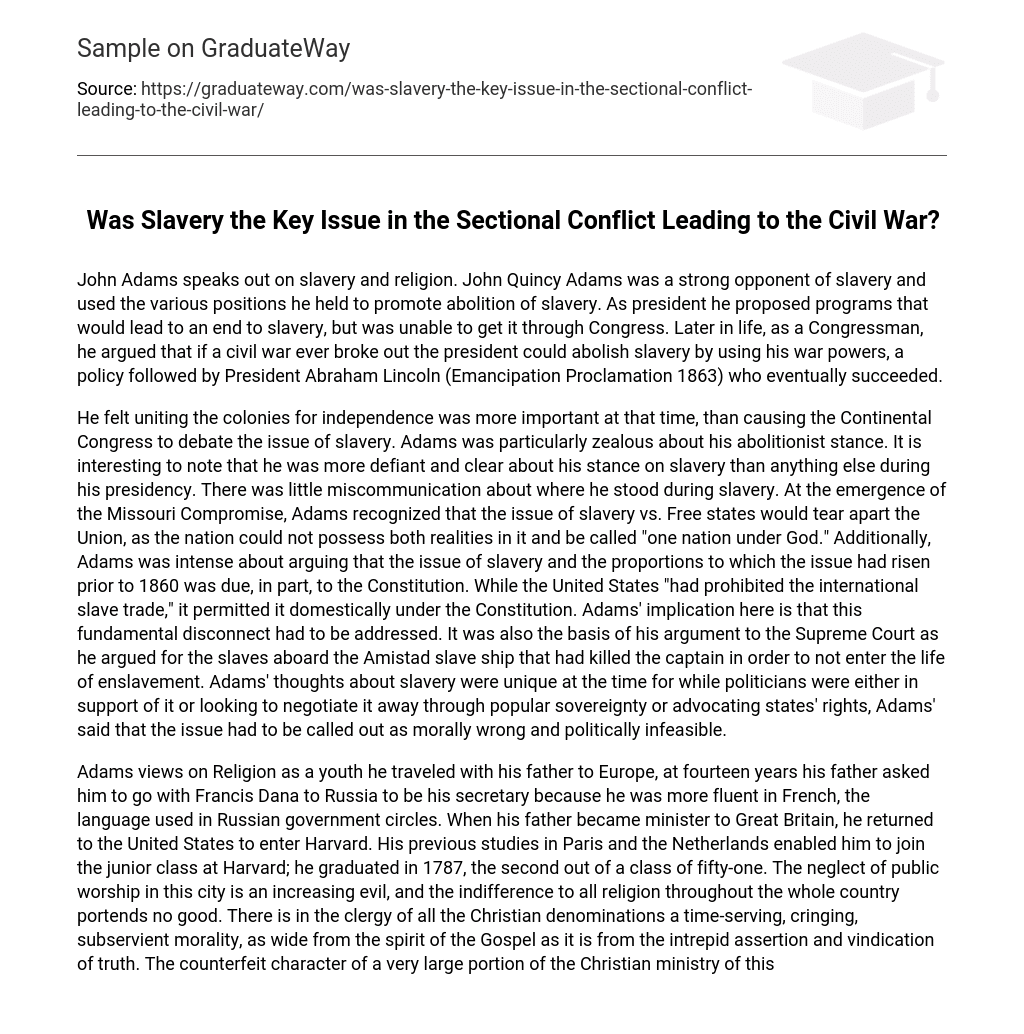John Adams speaks out on slavery and religion. John Quincy Adams was a strong opponent of slavery and used the various positions he held to promote abolition of slavery. As president he proposed programs that would lead to an end to slavery, but was unable to get it through Congress. Later in life, as a Congressman, he argued that if a civil war ever broke out the president could abolish slavery by using his war powers, a policy followed by President Abraham Lincoln (Emancipation Proclamation 1863) who eventually succeeded.
He felt uniting the colonies for independence was more important at that time, than causing the Continental Congress to debate the issue of slavery. Adams was particularly zealous about his abolitionist stance. It is interesting to note that he was more defiant and clear about his stance on slavery than anything else during his presidency. There was little miscommunication about where he stood during slavery. At the emergence of the Missouri Compromise, Adams recognized that the issue of slavery vs. Free states would tear apart the Union, as the nation could not possess both realities in it and be called “one nation under God.” Additionally, Adams was intense about arguing that the issue of slavery and the proportions to which the issue had risen prior to 1860 was due, in part, to the Constitution. While the United States “had prohibited the international slave trade,” it permitted it domestically under the Constitution. Adams’ implication here is that this fundamental disconnect had to be addressed. It was also the basis of his argument to the Supreme Court as he argued for the slaves aboard the Amistad slave ship that had killed the captain in order to not enter the life of enslavement. Adams’ thoughts about slavery were unique at the time for while politicians were either in support of it or looking to negotiate it away through popular sovereignty or advocating states’ rights, Adams’ said that the issue had to be called out as morally wrong and politically infeasible.
Adams views on Religion as a youth he traveled with his father to Europe, at fourteen years his father asked him to go with Francis Dana to Russia to be his secretary because he was more fluent in French, the language used in Russian government circles. When his father became minister to Great Britain, he returned to the United States to enter Harvard. His previous studies in Paris and the Netherlands enabled him to join the junior class at Harvard; he graduated in 1787, the second out of a class of fifty-one. The neglect of public worship in this city is an increasing evil, and the indifference to all religion throughout the whole country portends no good. There is in the clergy of all the Christian denominations a time-serving, cringing, subservient morality, as wide from the spirit of the Gospel as it is from the intrepid assertion and vindication of truth. The counterfeit character of a very large portion of the Christian ministry of this country is disclosed in the dissensions growing up in all the Protestant churches on the subject of slavery.





